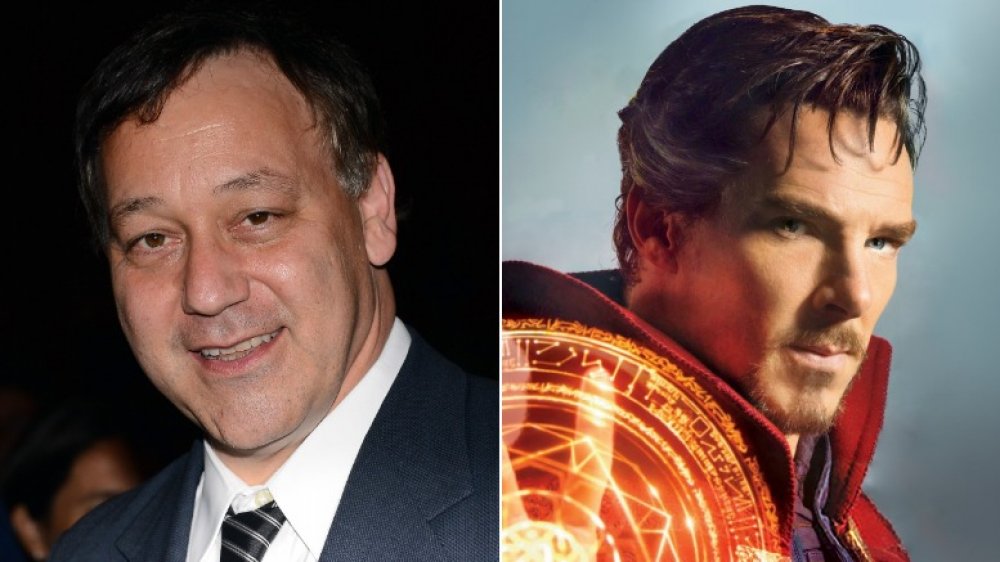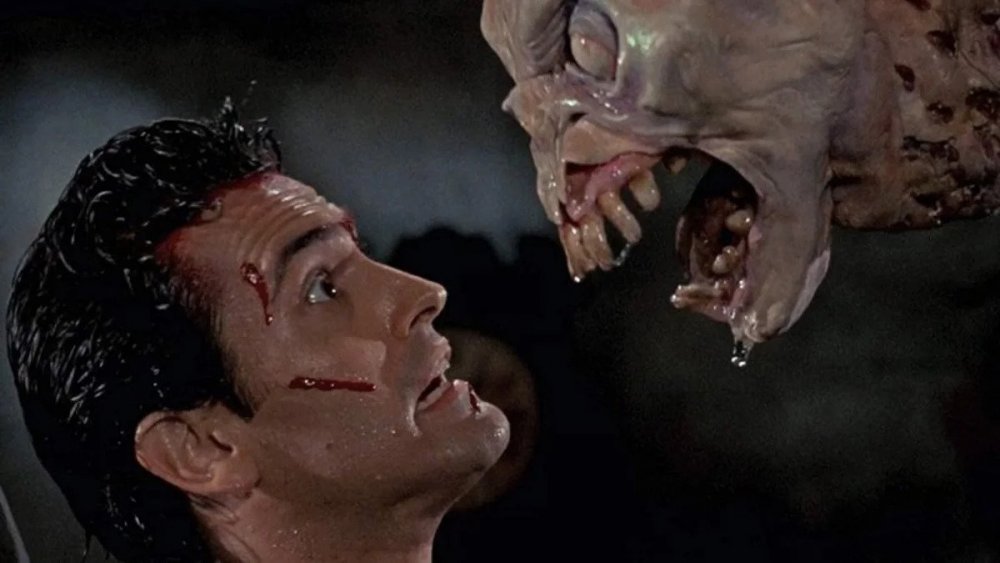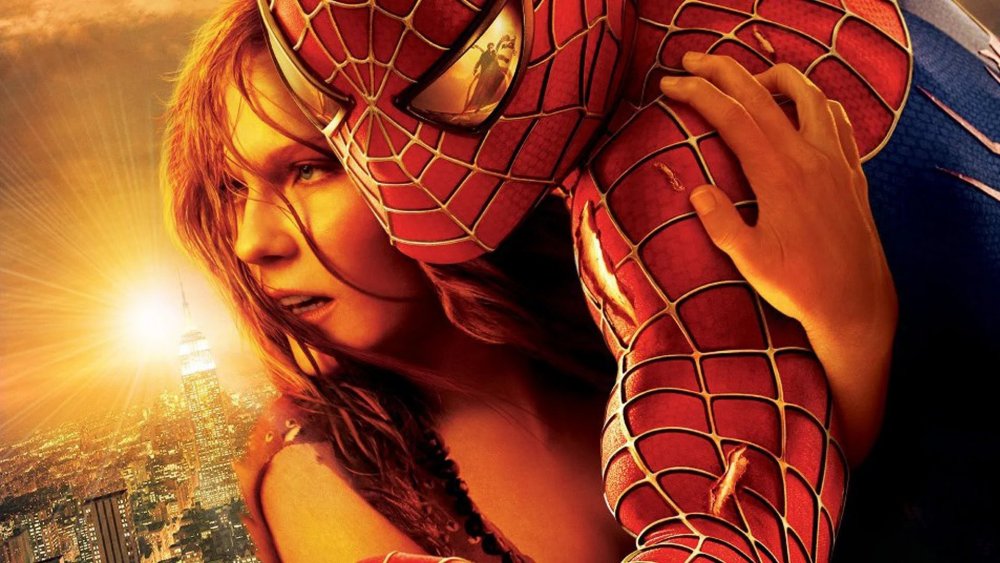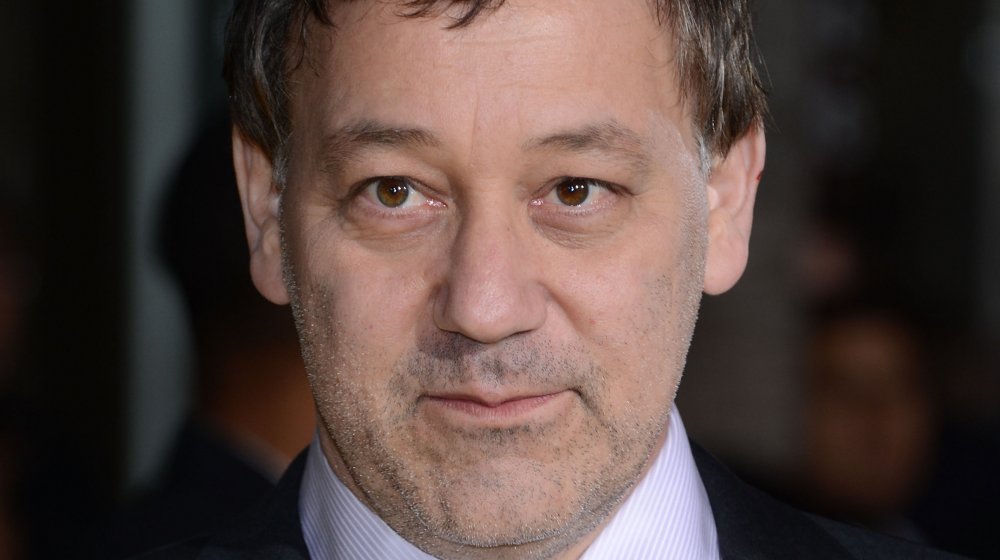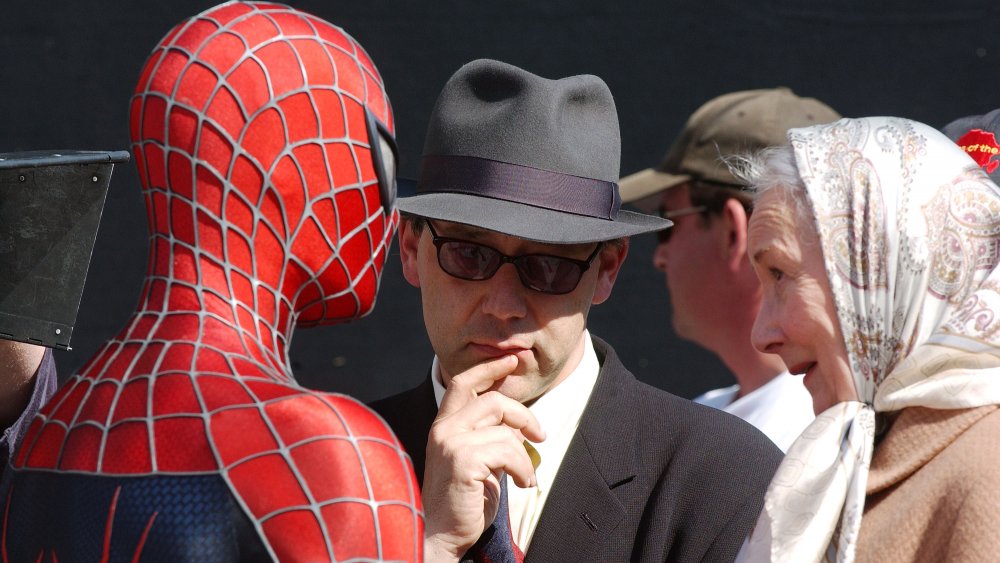Why Sam Raimi Would Actually Be Perfect To Direct Doctor Strange 2
When it was announced that Doctor Strange director Scott Derrickson was dropping out of the upcoming sequel, Doctor Strange in the Multiverse of Madness, Marvel fans were heartbroken. Derrickson had acquitted himself so nicely on the first film, and seemed so keen to deliver the Marvel Cinematic Universe's first scary movie, that the director's exit over those pesky "creative differences" seemed like the kind of thing that could sink a potentially incredible flick.
That is, until we got wind of Derrickson's potential replacement. In February 2020, Variety reported that Sam Raimi, the veteran director who hasn't made a feature film since 2013's Oz the Great and Powerful, was in talks to take over the Strange sequel. If you're not too familiar with Raimi's work, you may just be relieved that the good Doctor's second solo outing seems to be back on track — but if you are, then you likely recognize that this choice would be nothing short of an inspired one by Marvel Studios.
We hated to see Derrickson go as much as anyone else — but in our humble opinion, if there is one single director on the face of the planet who could potentially crush Doctor Strange 2 even harder than Derrickson would have, it's Raimi. Everything about the guy's history suggests that not only is he the right man for the job, but that his entire career may very well have been leading up to this opportunity.
Sam Raimi has plenty of experience with horror
Marvel fans could read between the lines of a series of public statements made by both Derrickson and Marvel head honcho Kevin Feige to arrive at a reasonable conclusion: Derrickson was intent on making Doctor Strange 2 pretty much a straight horror flick, and Feige wasn't really down with that. The big boss always talked about the sequel more in terms of it being a "big MCU film with scary sequences in it," which honestly sounds like a concept custom-made for Raimi.
Other than fantastic character development and slam-bang action, the films of the MCU have long been distinguished by their sense of humor, and there are few directors more adept at blending horrific and comedic elements than Raimi. For evidence, look no further than his masterpiece, 1987's Evil Dead 2: Dead by Dawn, a film intent on having its audience doubled over with laughter when they're not being showered in literal geysers of blood.
Raimi proved that he hadn't lost this touch with 2009's underrated horror-comedy Drag Me to Hell, which featured some truly inspired comedic line readings and sight gags peppered into all of its horrifying mayhem. It's difficult to strike a balance between the frightening and the funny, and even tougher to do so in service of a superhero film — but this is a job for which Raimi is uniquely qualified.
Sam Raimi also has lots of experience with superhero movies
2002's Spider-Man helped to usher in the modern era of superhero cinema, and when Raimi was selected to direct it, it seemed like a hell of an out-of-left-field choice. At the time, he was still known primarily for the Evil Dead pictures, and virtually nothing else in his filmography — which included the gonzo Western The Quick and the Dead, the airtight crime thriller A Simple Plan, and the brilliant psychological horror film The Gift — indicated that he was capable of working on the kind of scale that the first live-action feature based on Spidey would require.
Of course, astute followers of Raimi's work knew that one of his most overlooked films from roughly a decade prior was all the proof that was needed that the director was more than capable of working in the superhero genre, which we'll discuss more in a bit. But Spider-Man, of course, went on to be a smash hit — and in 2004's Spider-Man 2, Raimi put up a picture that is to this day considered to be among the finest of its genre ever made.
He's the first to admit that Spider-Man 3, perhaps the most infamous case of "villain bloat" in comic book movie history, got away from him. For that, though, we can largely blame studio Sony, and its insistence that Raimi plug in a fan-favorite character (Eddie Brock/Venom, portrayed by That 70's Show star Topher Grace) that he wasn't terribly familiar with, and didn't particularly like (via Collider).
Sam Raimi's visual style could bring the madness to Doctor Strange 2
1981's Evil Dead was Raimi's debut feature, and it dropped smack dab in the middle of the golden age of slasher films. There was, to put it mildly, a glut of bloody horror flicks swamping theaters at the time, enough so that some very good examples of the genre (such as The Prowler and The Burning, both released that same year) got lost in the shuffle.
Despite its shoestring budget and cast of unknowns, though, Evil Dead made a strong impression — and this is thanks largely to Raimi's visual style, which could be described as "unrestrained," or more accurately as "completely freaking bonkers." Raimi was apt to let his camera swoop, zoom, and pan in ways that might have given contemporary viewers whiplash — and even when handed the keys to a major studio tentpole film like Spider-Man, certain elements of his signature style tended to bleed through, even if his overall approach was more disciplined.
Simply put, we find Raimi's aesthetic to be a perfect fit for a film titled Doctor Strange in the Multiverse of Madness. We get the distinct feeling that the movie will be sorely needing a director who knows when to rein it in, and when to let it go off the rails — and when it must do the latter, Raimi has a knack for getting really far out without losing the audience.
It truly could be a match made in comic book movie heaven — and truth be told, considering just how much Raimi loves superheroes, it's a little surprising that it took this long for his name to be mentioned in connection with an MCU project.
Sam Raimi is a huge comic book geek
Even as Raimi was finding success in the '80s with a chainsaw-handed Bruce Campbell fighting off legions of disgusting Deadites, he was openly lobbying to make superhero pictures. At various times, he tried to acquire the rights to make features based on Batman and the Shadow — but, as a relatively unknown filmmaker, nobody would give him a shot (via A.V. Club).
Undeterred, Raimi decided to make his own superhero flick: 1990's Darkman, which was an original creation and the first action movie to star future ubiquitous badass Liam Neeson. The movie did moderately well and became a cult classic, but it also earned attention from a figure of some note in the comic book world: Stan Lee, who called up Raimi with an offer to kick some ideas around over lunch (via The Hollywood Reporter).
The idea that Raimi pitched to Lee in that 1991 meeting: Thor. The two collaborated on various treatments for the flick, but when Raimi took their work to Fox Studios, he was shot down by the brass, who he says told him, "Absolutely no. Comic books don't make good movies."
Of course, Raimi knew that this was a load of crap — and less than a decade later, he'd be helping to pave the way for the future success of the MCU with Spider-Man. Should Marvel Studios hire him to direct Doctor Strange in the Multiverse of Madness, it may just be the smartest in a long, long series of very smart moves — and considering that he's be the most experienced director to helm an MCU movie since Phase 1, we're thinking that the talks should be going pretty well.
